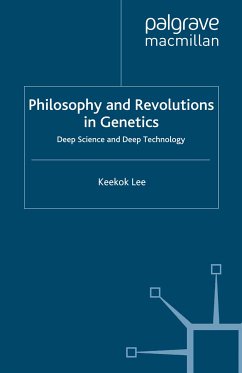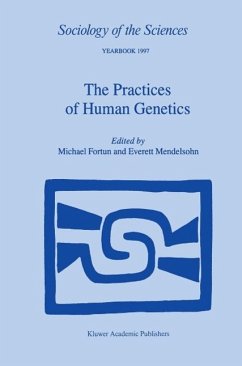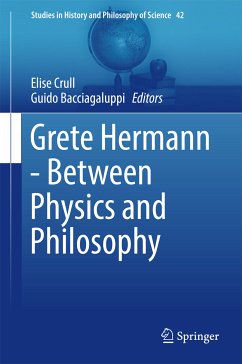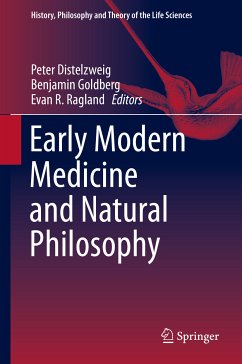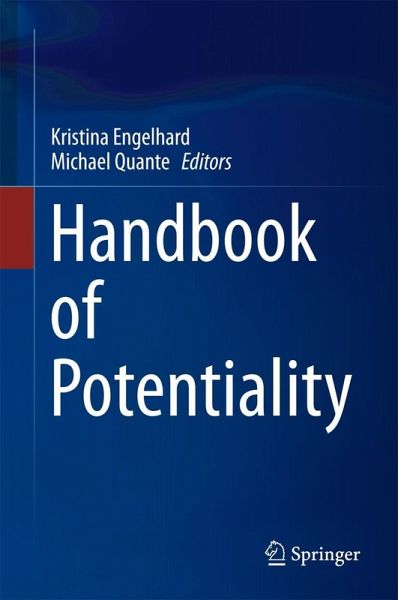
eBook, PDF
Handbook of Potentiality (eBook, PDF)

PAYBACK Punkte
108 °P sammeln!





Handbook of Potentiality (eBook, PDF)
Dieser Download kann aus rechtlichen Gründen nur mit Rechnungsadresse in A, B, BG, CY, CZ, D, DK, EW, E, FIN, F, GR, HR, H, IRL, I, LT, L, LR, M, NL, PL, P, R, S, SLO, SK ausgeliefert werden.
Kristina Engelhard is a post-doc Research Fellow at the DFG-funded research group "Inductive Metaphysics", located at the Technical University of Dortmund, Germany. Her current research is on dispositions, laws of nature, methods in metaphysics, metametaphysics, classical German Philosophy and early modern philosophy. Her publications include "Das Einfache und die Materie. Untersuchungen zu Kants Antinomie der Teilung" (De Gruyter 2005), "Categories and the ontology of powers. A semi-dualist account of pandispositionalism" (in: A. Marmodoro (ed.), The Metaphsics of Powers. Their Grounding and their Manifestations, Routledge 2010), "Können Dispositionen das Realismus-Problem des transzendentalen Idealismus lösen?" (in: M. Egger (ed.), Philosophie nach Kant. Neue Wege zum Verständnis von Kants Transzendental- und Moralphilosophie, De Gruyter 2014). Michael Quante is Professor for Practical Philosophy at the Department of Philosophy at Westfälische Wilhelms-Universityof Münster, Germany. His research areas are action theory, philosophy of person, ethics and applied ethics. His most important publications are "Hegel's Concept of Action" (Cambridge University Press 2004), "Person" (de Gruyter 2012); "Personal Identity as a Principle of Biomedical Ethics" (Springer 2016).
Produktdetails
- Verlag: Springer Netherlands
- Seitenzahl: 433
- Erscheinungstermin: 18. April 2018
- Englisch
- ISBN-13: 9789402412871
- Artikelnr.: 52943853
Für dieses Produkt wurde noch keine Bewertung abgegeben. Wir würden uns sehr freuen, wenn du die erste Bewertung schreibst!
Eine Bewertung schreiben
Eine Bewertung schreiben
Andere Kunden interessierten sich für


